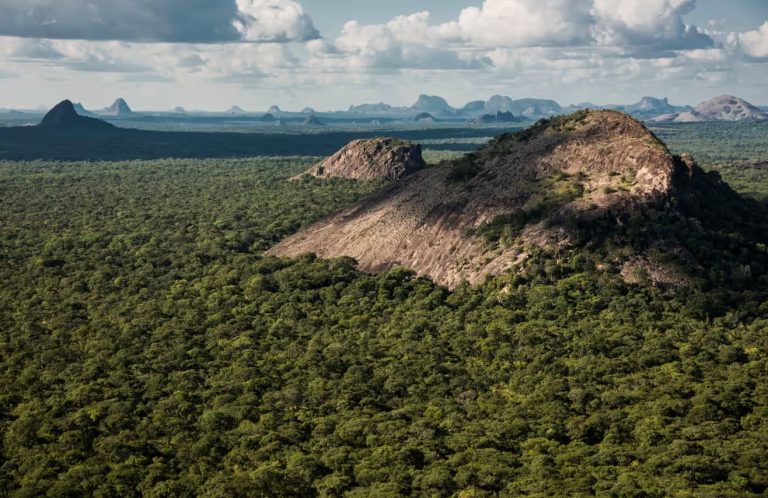One of Africa’s largest protected areas, the Niassa Reserve in Mozambique, has been rocked by a wave of violent attacks carried out by extremists linked to the Islamic State, leaving at least 10 people dead.
Conservationists working in Niassa say the violence is threatening decades of progress in restoring populations of key wildlife species such as lions, elephants, and African wild dogs. With operations suspended, critical conservation efforts have come to a standstill.
The most recent attack occurred on April 29, when militants targeted buildings in the reserve, killing two anti-poaching scouts. Two others are missing, and one was seriously injured. The assault—later claimed by Islamic State-Mozambique—came just 10 days after another violent raid on a nearby safari camp, where two people were beheaded and six soldiers were killed. The ongoing violence has displaced a village of 2,000 residents and forced the suspension of all conservation activities in the area, according to local sources.
Wildlife and community organisations issued warnings on Monday, stating that over 20 years of conservation work is now in jeopardy.
“The most devastating impact of these attacks is the fear they spread—exactly what the perpetrators intend,” said Colleen Begg, managing director of the Niassa Carnivore Project. “The brutality is shocking: the two carpenters killed at the safari camp were beheaded. Communities are terrified.”
Begg added that the halt in tourism and conservation efforts could have long-term consequences for the region.
“Niassa Reserve is extraordinary—not just because of its wildlife, but its sheer scale. It’s as large as Switzerland, unfenced, and home to vast roaming populations of lions, elephants, and other species that require enormous space. We’ve been working to secure world heritage status for it, and all of that is now under threat due to the instability.”
Covering 4.2 million hectares (approximately 10 million acres), Niassa is considered one of Africa’s most vital wildlife sanctuaries. It harbors around 1,000 lions, 350 critically endangered African wild dogs, and growing numbers of elephants, buffalo, and other essential species.

Islamic State Mozambique—locally referred to as al-Shabaab, though unrelated to the Somali group of the same name—first emerged in 2017. Since then, the insurgency has displaced over a million people in northern Mozambique as its influence has grown. Although a military crackdown followed the high-profile attack on the city of Palma—which led to the suspension of a major natural gas project by TotalEnergies—the group remains active in the country’s northernmost province.
In the wake of recent violence, nine conservation and safari camps in Niassa have been abandoned, and one was reportedly destroyed by the militants. Colleen Begg emphasized the urgent need for support to restore peace and prevent further casualties. The Mozambican army is currently pursuing the insurgents linked to Islamic State.
“The immediate priority is to remove the insurgents from Niassa. Without peace, people can’t even carry out daily tasks—whether it’s collecting honey, farming, or harvesting,” Begg said. “For conservationists, it’s an impossible situation. Tourists won’t come, and everything we’ve worked for is at risk. The impact is devastating.”

